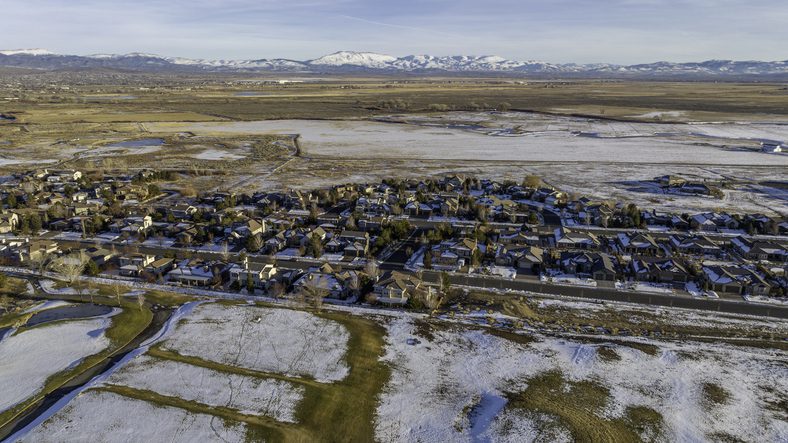
The funds will be split between the Broadband Equity, Access and Deployment (BEAD) Program and the Eastern Nevada Middle Mile Fiber Network, which are both part of the High Speed Nevada Initiative, an effort to establish statewide universal access to modern broadband infrastructure. (Photo via Shutterstock)
Nevada lawmakers on Wednesday approved the use of $360 million in funding from President Biden’s Infrastructure law to advance two projects aimed at expanding high-speed internet across the state.
The funds will be split between the Broadband Equity, Access and Deployment (BEAD) Program and the Eastern Nevada Middle Mile Fiber Network, which are both part of the High Speed Nevada Initiative, an effort to establish statewide universal access to modern broadband infrastructure.
Of the $42 billion BEAD program, Nevada has $416 million available to expand broadband access. The state’s available funding was increased from the minimum allocation of $100 million earlier this year, in part due to efforts from Democratic Sen. Jacky Rosen, who urged federal regulators to update the national broadband map to more accurately reflect unserved locations throughout Nevada.
At Wednesday’s meeting, lawmakers approved how that extra $316 million will be used to close gaps of broadband access, mainly in rural parts of the state.
The rest of the money approved Wednesday–$43.5 million–will go towards the Governor’s Office of Science, Innovation and Technology (OSIT), which also supported efforts to expand the national broadband map.
That funding came from provisions that originated in Rosen’s Middle Mile Broadband Deployment Act, which was included in the final version of Biden’s Infrastructure Law.
OSIT will use that funding to build a 431-mile fiber optic network running along US Route 93. It will run from Las Vegas, go north through Elko County, and end in the city of Wells.
The project is expected to “greatly enhance the capacity of last-mile networks to deliver affordable, high-speed Internet access to over 21,000 locations that are unserved or underserved today,” according to materials submitted to lawmakers by OSIT.
Brian Mitchell, director of OSIT, told lawmakers that the project is expected to be completed within the next 24- to 36 months.

Biden sets 10-year deadline for cities to replace lead pipes and make drinking water safer
A decade after the Flint, Michigan, water crisis raised alarms about the continuing dangers of lead in tap water, President Joe Biden is setting a...

Opinion: We must help communities that have been left behind, no matter who wins in November
In this op-ed, Justin Maxson and Sarah Jaynes advocate for prioritizing federal investments to uplift all communities and ensure widespread economic...

Opinion: Rural housing for all: Supporting affordable homes in Nevada
Anya Lindsey, a single mother, was sharing a bedroom with her two young children at her parents’ home when she heard a news story about USDA Rural...

Inauguran puente “Silver Copper Crossing” que une Laughlin y Bullhead City
Los residentes y turistas que deben cruzar el río Colorado tienen una excelente opción con la inauguración del puente “Silver Copper Crossing”, que...

Northern Nevadans fear NV Energy plan would mean some of highest service charges in U.S.
BY: DANA GENTRY, Nevada Current Northern Nevada residents voiced their opposition Tuesday to NV Energy’s proposal to increase its shareholder return...

Nevada tribal communities to get $27M for affordable housing
Nevada’s senators applauded the funding, which comes in addition to federal investments last year that helped build new housing projects in Owyhee...




